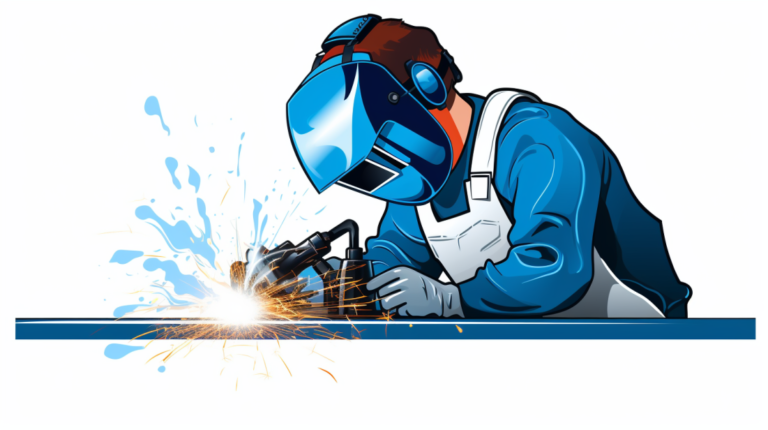Exploring the Chief of Staff Career Path

The Chief of Staff role offers a unique and rewarding career path that requires a diverse set of skills and experiences. As a Chief of Staff, I have had the privilege of navigating this exciting career journey, and in this section, I will share my insights and experiences to help you better understand this role.
Starting off in the Chief of Staff role, there is no fixed career path. Some individuals embark on this journey early in their careers, while others transition into it later on. Regardless of when you step into this role, the first six months are crucial for building relationships and mapping out the organization. This entails getting to know key stakeholders, understanding the operational dynamics, and identifying areas for improvement.
Creating visible early wins is another important aspect of the Chief of Staff role. By achieving quick wins in strategic projects and initiatives, you can demonstrate your value to the organization. Additionally, automating routine responsibilities can free up time for more critical tasks, allowing you to focus on higher-level strategic planning and decision-making.
The Chief of Staff role provides a unique opportunity to develop an executive mindset and gain a deep understanding of how businesses operate. It enables you to align your work with the organization’s vision, mission, and goals, while also developing your own career preferences and aspirations.
To be successful as a Chief of Staff, strong interpersonal skills are essential. Building relationships, effective communication, and negotiation skills are crucial for collaborating with diverse teams and stakeholders. Additionally, several years of executive-level experience can provide valuable insights into leadership and management, enabling you to thrive in this role.
- The Chief of Staff role offers a unique and rewarding career path.
- Building relationships and mapping out the organization are crucial in the first six months.
- Achieving early wins and automating routine responsibilities streamline operations.
- The role helps develop an executive mindset and align with the organization’s goals.
- Strong interpersonal skills and executive-level experience are key to success as a Chief of Staff.
Understanding the Role of a Chief of Staff

As a Chief of Staff, you will be responsible for supporting senior executives in managing projects, developing strategies, and providing leadership guidance. This role is crucial in ensuring the smooth functioning of an organization by overseeing the day-to-day operations and facilitating effective communication across all levels. It requires a diverse skill set encompassing elements of executive assistance, project management, strategic planning, and leadership.
One of the key responsibilities of a Chief of Staff is to assist senior executives in managing projects and initiatives. This involves coordinating with various teams, ensuring timelines and deliverables are met, and providing regular updates to stakeholders. Strong project management skills are essential in balancing multiple priorities and ensuring the successful execution of strategic initiatives.
Additionally, a Chief of Staff plays a critical role in strategic planning. They collaborate closely with senior executives to develop and refine the organizational vision, mission, and goals. This requires a keen understanding of market trends, industry dynamics, and the competitive landscape. By staying abreast of industry developments, a Chief of Staff can provide valuable insights and recommendations to help drive the organization’s success.
Leadership is another core aspect of the Chief of Staff role. It involves building and nurturing relationships with internal and external stakeholders, fostering a collaborative and inclusive work environment, and providing guidance and mentorship to team members. Effective communication skills, both written and verbal, are vital in conveying ideas, aligning teams, and influencing decision-making processes. Moreover, a Chief of Staff must possess strong management capabilities to ensure the efficient allocation of resources, timely problem-solving, and organizational effectiveness.
| Responsibilities | Skills Required |
|---|---|
| Managing projects | Project management, organizational skills |
| Developing strategies | Strategic planning, market analysis |
| Providing leadership guidance | Leadership, communication |
“As a Chief of Staff, it is essential to prioritize tasks, adapt to changing circumstances, and foster a collaborative and results-driven work culture.”
In conclusion, the role of a Chief of Staff is multifaceted and requires a range of skills and competencies. By supporting senior executives, managing projects, developing strategies, and providing leadership guidance, individuals in this role play a crucial part in the success of an organization. With strong interpersonal skills, project management experience, and a strategic mindset, a Chief of Staff can make a significant impact and drive positive change within their organization.
Building Relationships and Mapping the Organization
Building strong relationships with key stakeholders and mapping out the organization’s structure and functions are vital steps for a Chief of Staff to be effective in their role. As a Chief of Staff, I understand the importance of fostering strong connections with individuals across various departments and levels of the organization. By building these relationships, I have been able to gain a deeper understanding of the organization’s inner workings, identify key decision-makers, and effectively navigate complex dynamics.
Effective communication is essential in establishing relationships with key stakeholders. Being able to convey ideas clearly and concisely, actively listening to others, and adapting communication styles to different individuals are crucial skills for a Chief of Staff. I have found that open and transparent communication not only facilitates collaboration but also helps build trust and credibility.
Strategic planning is another key aspect of the Chief of Staff role. Through mapping out the organization, I have been able to identify areas of improvement, potential bottlenecks, and opportunities for synergy. This holistic understanding of the organization’s structure and functions enables me to provide valuable insights and support to the executive team in decision-making processes. By aligning initiatives and goals across departments, we have been able to achieve greater efficiency and collaboration, ultimately driving the organization’s success.
One of the key responsibilities of a Chief of Staff is fostering a collaborative and inclusive work environment. Strong team-building skills are essential in creating a cohesive and high-performing team. By leveraging my interpersonal skills, I have been able to bridge gaps, resolve conflicts, and promote a culture of mutual respect and support.
| Skills | Description |
|---|---|
| Communication | Effectively conveying information, actively listening, and adapting communication styles to different individuals. |
| Interpersonal Skills | Building and maintaining positive relationships, resolving conflicts, and promoting collaboration. |
| Negotiation Skills | Identifying and achieving mutually beneficial outcomes, fostering win-win situations. |
Early Wins and Automation
By focusing on early wins and automating repetitive tasks, Chief of Staff professionals can demonstrate their value and free up time for more strategic initiatives. In this role, analytical skills, problem-solving skills, and decision-making skills are essential for identifying opportunities for improvement and implementing efficient solutions.
One way to achieve early wins is by streamlining processes and automating routine responsibilities. This not only saves time but also reduces the risk of errors. By leveraging technology and automation tools, Chief of Staff professionals can increase efficiency and productivity within the organization.
Furthermore, automating repetitive tasks allows Chief of Staff professionals to redirect their efforts towards more strategic initiatives. It enables them to focus on high-priority projects and contribute to the organization’s long-term goals. With automation in place, Chief of Staff professionals can play a more proactive role in driving innovation and growth.
| Benefits of Automation in the Chief of Staff Role |
|---|
| Enhanced productivity and efficiency |
| Reduction in errors and risks |
| Time savings for strategic initiatives |
| Increased focus on high-priority projects |
Developing an Executive Mindset

A Chief of Staff role provides an excellent opportunity to develop an executive mindset, where you can contribute to the vision, mission, and strategic objectives of the organization. It is an exciting journey that allows you to work closely with top-level leaders and gain insights into the inner workings of a business. As a Chief of Staff, you have the chance to shape the future of the organization and make a meaningful impact.
To effectively develop an executive mindset, it is crucial to align your creativity and problem-solving abilities with the organization’s goals and objectives. This requires a deep understanding of the business landscape, industry trends, and the competitive environment. By analyzing data, reporting on performance metrics, and conducting thorough market research, you can provide valuable insights that drive strategic decision-making.
Furthermore, fostering a culture of innovation and continuous improvement is essential in developing an executive mindset. By encouraging creativity and thinking outside the box, you can contribute to the development of new ideas, products, and services. Collaboration and effective communication are also key components, as they enable cross-functional teams to work together towards a shared vision.
Experience and Skills Required
To succeed as a Chief of Staff, you will need a combination of leadership experience, strong interpersonal skills, and a commitment to continuous learning and development. Collaboration and teamwork are essential in this role, as you will be working closely with senior executives and various departments within the organization. Effective communication and the ability to build relationships are crucial to successfully navigate the complex dynamics of an organization.
Mentoring and coaching skills are also highly valued in a Chief of Staff, as you will be supporting and guiding the executive team. This requires a deep understanding of their individual strengths and weaknesses, as well as the ability to provide constructive feedback and support their professional growth.
In terms of education and certification, a Bachelor’s degree in a relevant field is usually required. Additional certifications or accreditations in leadership, project management, or other related areas can also strengthen your candidacy. Continuous learning and staying updated on industry trends are key to staying relevant and effective in this role.
Recognition for your contributions and accomplishments is important for career progression. As a Chief of Staff, you should strive to establish yourself as a thought leader in your industry. Publishing articles, speaking at conferences, and participating in professional networks and associations are great ways to showcase your expertise and expand your professional network.
Key Skills:
- Leadership
- Interpersonal skills
- Collaboration and teamwork
- Mentoring and coaching
- Training and education
- Certification and accreditation
- Recognition
| Skill | Requirements |
|---|---|
| Leadership | Several years of executive-level experience |
| Interpersonal skills | Effective communication, relationship building |
| Collaboration and teamwork | Working closely with senior executives and departments |
| Mentoring and coaching | Supporting and guiding the executive team |
| Training and education | Bachelor’s degree in a relevant field |
| Certification and accreditation | Additional certifications in leadership, project management |
| Recognition | Establishing thought leadership through publications and speaking engagements |
Navigating Challenges and Seizing Opportunities

Chief of Staff professionals must navigate challenges such as changing industry trends, regulatory environments, and economic conditions while also seizing opportunities for growth and development. Staying ahead of the curve is essential in a rapidly evolving business landscape. By monitoring industry trends and understanding their potential impact on the organization, Chief of Staff professionals can proactively identify opportunities and mitigate risks.
The regulatory environment is another challenge that requires careful navigation. With ever-changing laws and regulations, staying compliant is crucial. Chief of Staff professionals must stay informed, build strong relationships with legal and compliance teams, and ensure that the organization’s policies and practices align with regulatory requirements.
Opportunities for growth and development can arise from external factors such as globalization and technological advancements. Embracing globalization opens doors to new markets and partnerships, while advancements in technology enable process optimization and innovation. Chief of Staff professionals who recognize and seize these opportunities can propel their organizations forward and contribute to their long-term success.
Impact of Economic Conditions
Economic conditions play a significant role in shaping the success of an organization. Chief of Staff professionals must be mindful of economic shifts, including market volatility, inflation rates, and geopolitical factors. By closely monitoring these conditions and assessing their impact on the organization, Chief of Staff professionals can adapt strategies and make informed decisions to ensure stability and growth.
Overall, the role of a Chief of Staff encompasses managing challenges and capitalizing on opportunities. By staying informed and proactive, Chief of Staff professionals can navigate the ever-changing landscape, driving their organizations towards success in a dynamic and competitive business environment.
| Challenges | Opportunities |
|---|---|
| Changing industry trends | New market expansion |
| Regulatory environments | Partnerships and collaborations |
| Economic conditions | Technological advancements |
| Globalization | Process optimization and innovation |
Professional Development and Networking
Joining industry associations, attending conferences, and engaging with thought leaders can help Chief of Staff professionals stay updated on best practices and industry trends. These opportunities provide a platform to connect with peers, gain insights from experienced professionals, and expand your professional network.
Industry associations offer a wealth of resources, including publications, webinars, and events that cater to the unique needs and interests of Chief of Staff professionals. By becoming a member, you can access valuable content, participate in discussions, and stay informed about the latest developments in your field.
Conferences and events are excellent opportunities to learn from industry experts, hear inspiring success stories, and discover innovative strategies. These gatherings not only provide educational sessions but also foster networking opportunities. By engaging with like-minded professionals, you can exchange ideas, share experiences, and create meaningful connections that may benefit your career in the long run.
Additionally, thought leaders play a crucial role in shaping the future of various industries. Following their insights through blogs, podcasts, and books can provide valuable guidance and inspiration. By staying updated on their thoughts and ideas, you can enhance your knowledge and broaden your perspective as a Chief of Staff professional.
Table: Professional Development Opportunities
| Opportunity | Description |
|---|---|
| Industry Associations | Joining industry-specific associations provides access to resources, publications, and networking opportunities. |
| Conferences and Events | Attending conferences and events offers the chance to learn from experts and network with peers. |
| Thought Leadership | Following thought leaders through blogs, podcasts, and books provides valuable insights and inspiration. |
Investing time and effort into professional development and networking can contribute to your growth as a Chief of Staff professional. By staying connected with your industry and engaging with thought leaders, you can stay ahead of the curve, expand your knowledge base, and enhance your career prospects.
Hearing about success stories and learning from the experiences of seasoned Chief of Staff professionals can provide valuable insights and inspiration for your own career journey. These stories highlight the best practices, challenges, opportunities, and lessons learned in navigating the dynamic landscape of the Chief of Staff role.
One success story that stands out is the journey of Sarah James, who started as an executive assistant and worked her way up to becoming a Chief of Staff at a Fortune 500 company. Sarah’s key to success was her ability to build strong relationships and effectively communicate with stakeholders across all levels of the organization. By understanding the goals and objectives of the company, she was able to align her efforts and drive strategic initiatives that positively impacted the business.
“As a Chief of Staff, it’s crucial to anticipate challenges and seize opportunities,” says Sarah. “By staying informed about industry trends and the regulatory environment, I was able to navigate through obstacles and identify innovative solutions that helped the company stay ahead of the competition.”
Another valuable lesson comes from Mark Thompson, who embraced automation to streamline operations and drive efficiency. Mark implemented various digital tools and technologies that automated routine tasks, freeing up time for more strategic initiatives. This led to significant cost savings and improved productivity within the organization.
Summarizing these success stories and lessons learned, it’s evident that a successful Chief of Staff possesses a combination of strong interpersonal skills, executive-level experience, and the ability to adapt to changing situations. By building relationships, achieving early wins, developing an executive mindset, and embracing professional development opportunities, aspiring Chief of Staff professionals can pave the way for a rewarding and impactful career.
“Success in the Chief of Staff role is about being organized, efficient, and an effective communicator,” affirms Sarah. “By aligning with the goals of the organization and continuously seeking growth opportunities, you can make a significant impact on the success of the company and your own professional journey.”
| Key Takeaways: |
|---|
| • Building strong relationships and effective communication are crucial for success as a Chief of Staff. |
| • Anticipating challenges and seizing opportunities is essential in navigating the Chief of Staff role. |
| • Automation and digital tools can drive efficiency and productivity in the Chief of Staff role. |
| • Possessing strong interpersonal skills and executive-level experience is key to excelling as a Chief of Staff. |
| • Being organized, efficient, and an effective communicator is crucial for success in the Chief of Staff role. |
Conclusion

The Chief of Staff career path offers a unique blend of responsibilities, challenges, and opportunities for growth, making it an exciting and rewarding choice for professionals seeking a diverse and impactful role. As I’ve explored throughout this article, the role of a Chief of Staff does not have a set career path. Whether you take on this role early in your career or transition into it later on, there are several key factors to consider for success.
During the first six months of the role, it is crucial to focus on building relationships and mapping out the organization. Understanding the dynamics of the team and having strong communication and interpersonal skills are essential in navigating the complexities of the position. Additionally, creating visible early wins and automating routine responsibilities can help streamline operations and free up time for more strategic planning and leadership.
The Chief of Staff role also provides opportunities for developing an executive mindset and gaining valuable insights into how businesses operate. This firsthand experience allows professionals to hone their analytical, problem-solving, and decision-making skills. The role requires several years of executive-level experience and a proven track record of collaboration, teamwork, and effective leadership.
In conclusion, the Chief of Staff career path is a dynamic and challenging field that requires individuals to be organized, efficient, and effective communicators. It offers professionals the chance to make a significant impact within an organization, while also providing opportunities for personal and professional growth. Whether you are just starting your career or considering a career change, the Chief of Staff role is worth exploring for its unique blend of responsibilities and its potential for a fulfilling and rewarding career.
Can the Skills and Experience of a Program Manager Help in Pursuing a Chief of Staff Career?
The skills and experience gained in a program manager career path guide can undoubtedly be valuable in pursuing a Chief of Staff career. Both roles require effective organizational skills, strategic thinking, and strong leadership abilities. Program managers often handle complex projects, honing their ability to coordinate multiple stakeholders and navigate challenges, which are crucial skills in a Chief of Staff role. Additionally, experience in managing budgets, resources, and teams can seamlessly translate into the Chief of Staff responsibilities.
FAQ
Q: What is the career path for a Chief of Staff?
A: The role of a Chief of Staff does not have a set career path. Some individuals take on the role early in their career, while others move into it later on.
Q: What should I focus on in the first six months as a Chief of Staff?
A: In the first six months of the role, it is important to build relationships and map out the organization. Creating visible early wins and automating routine responsibilities are also recommended.
Q: What skills are required to be a successful Chief of Staff?
A: The Chief of Staff role requires strong interpersonal skills and several years of executive-level experience. Being organized, efficient, and an effective communicator is key to success.
Q: What opportunities does the Chief of Staff role provide?
A: The Chief of Staff role provides opportunities to develop an executive mindset, learn how businesses work, and figure out personal career preferences.






